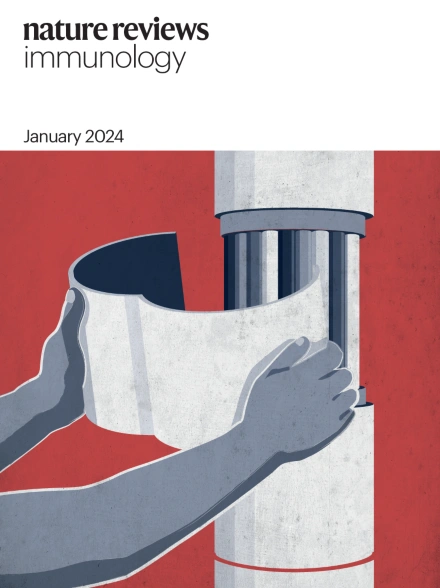在怀孕期间接种疫苗以保护新生儿
IF 60.9
1区 医学
Q1 IMMUNOLOGY
引用次数: 0
摘要
传染病对新生儿构成特别的危险,全球需要保护这一弱势群体。由于开发对新生儿有效的疫苗存在挑战,在出生后的头28天只接种乙肝和结核病疫苗,甚至这些疫苗也主要只提供给高危人群。母体抗体穿过胎盘,可以为新生儿提供一些保护,因此另一种策略是在怀孕期间接种疫苗。这一方法已成功地用于保护新生儿免受破伤风和百日咳的侵害,而流感和COVID-19疫苗等主要用于在怀孕期间保护母亲的疫苗也为新生儿提供了一定的保护。一种呼吸道合胞病毒疫苗最近已被批准用于妊娠期,以保护新生儿。一种新的疫苗即将在妊娠期提供,以预防婴儿感染B群链球菌。在这里,我们讨论了目前在怀孕期间和新生儿中提供的疫苗,正在开发的用于这些群体的疫苗,以及在这些疫苗的提供和吸收方面仍然存在的挑战。本文章由计算机程序翻译,如有差异,请以英文原文为准。


Vaccination in pregnancy to protect the newborn
Infectious diseases pose a particular risk to newborns and there is a global need to protect this vulnerable group. Because of the challenges of developing vaccines that are effective in newborns, only the hepatitis B and tuberculosis vaccines are given in the first 28 days of life, and even those vaccines are mainly only offered to high-risk groups. Maternal antibodies cross the placenta and can afford some protection to the newborn, so an alternative strategy is vaccination in pregnancy. This approach has been successfully used to protect newborns against tetanus and pertussis, and vaccines that are primarily offered to protect the mother during pregnancy, such as influenza and COVID-19 vaccines, also provide some protection to newborns. A respiratory syncytial virus vaccine has recently been approved for use in pregnancy to protect newborns, and a new vaccine that will be offered during pregnancy to prevent Group B Streptococcus infection in infants is on the horizon. Here, we discuss the current vaccines that are offered during pregnancy and to newborns, the vaccines in development for future use in these groups and the challenges that remain concerning the delivery and uptake of such vaccines. In this Review, Male and Jones provide an overview of the current vaccines that are offered during pregnancy and to newborns, explaining the rationale behind the different vaccination programmes and the unique challenges that come with immunizing these populations.
求助全文
通过发布文献求助,成功后即可免费获取论文全文。
去求助
来源期刊

Nature Reviews Immunology
医学-免疫学
CiteScore
93.40
自引率
0.40%
发文量
131
审稿时长
6-12 weeks
期刊介绍:
Nature Reviews Immunology is a journal that provides comprehensive coverage of all areas of immunology, including fundamental mechanisms and applied aspects. It has two international standard serial numbers (ISSN): 1474-1733 for print and 1474-1741 for online. In addition to review articles, the journal also features recent developments and new primary papers in the field, as well as reflections on influential people, papers, and events in the development of immunology. The subjects covered by Nature Reviews Immunology include allergy and asthma, autoimmunity, antigen processing and presentation, apoptosis and cell death, chemokines and chemokine receptors, cytokines and cytokine receptors, development and function of cells of the immune system, haematopoiesis, infection and immunity, immunotherapy, innate immunity, mucosal immunology and the microbiota, regulation of the immune response, signalling in the immune system, transplantation, tumour immunology and immunotherapy, and vaccine development.
 求助内容:
求助内容: 应助结果提醒方式:
应助结果提醒方式:


